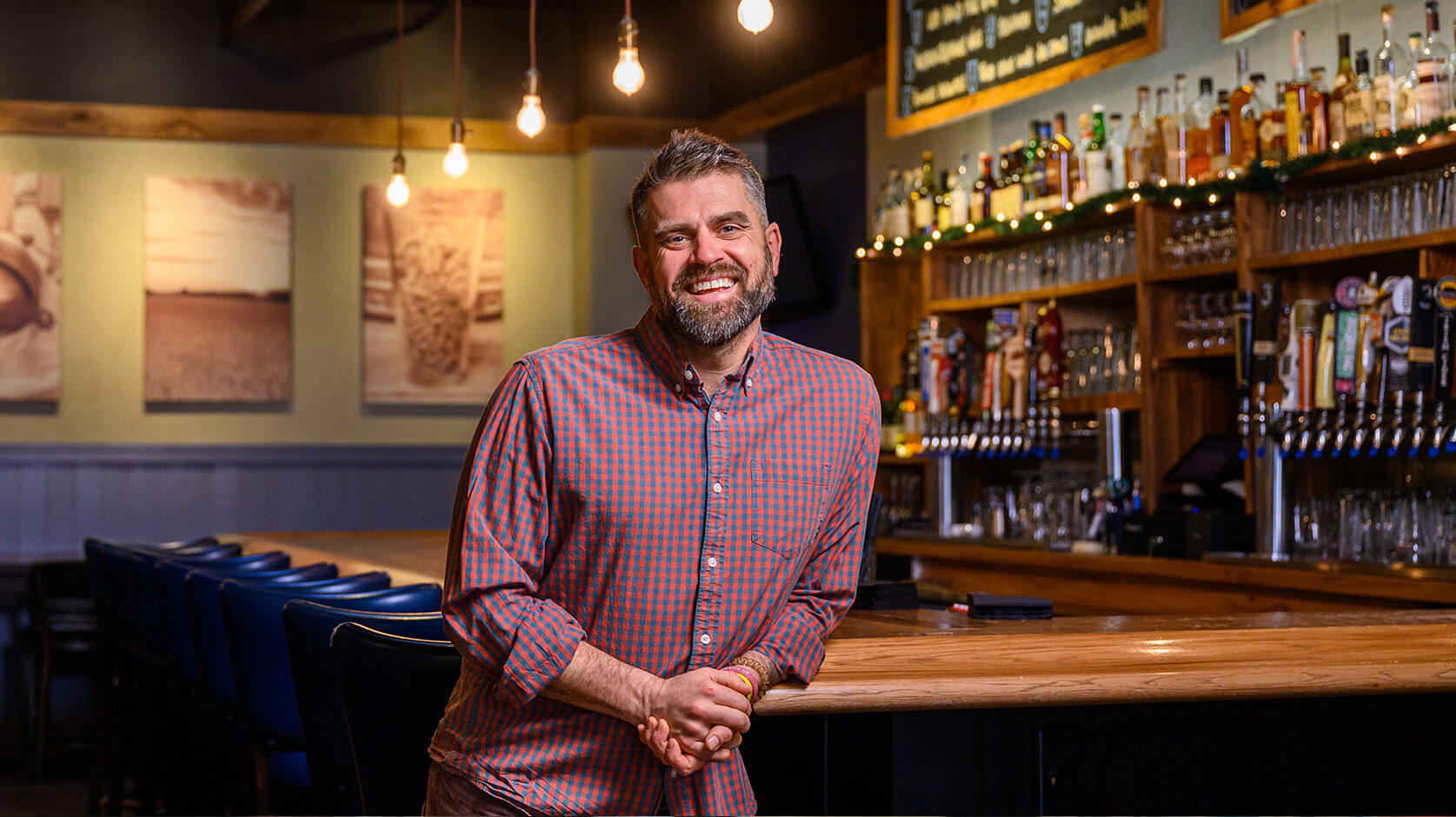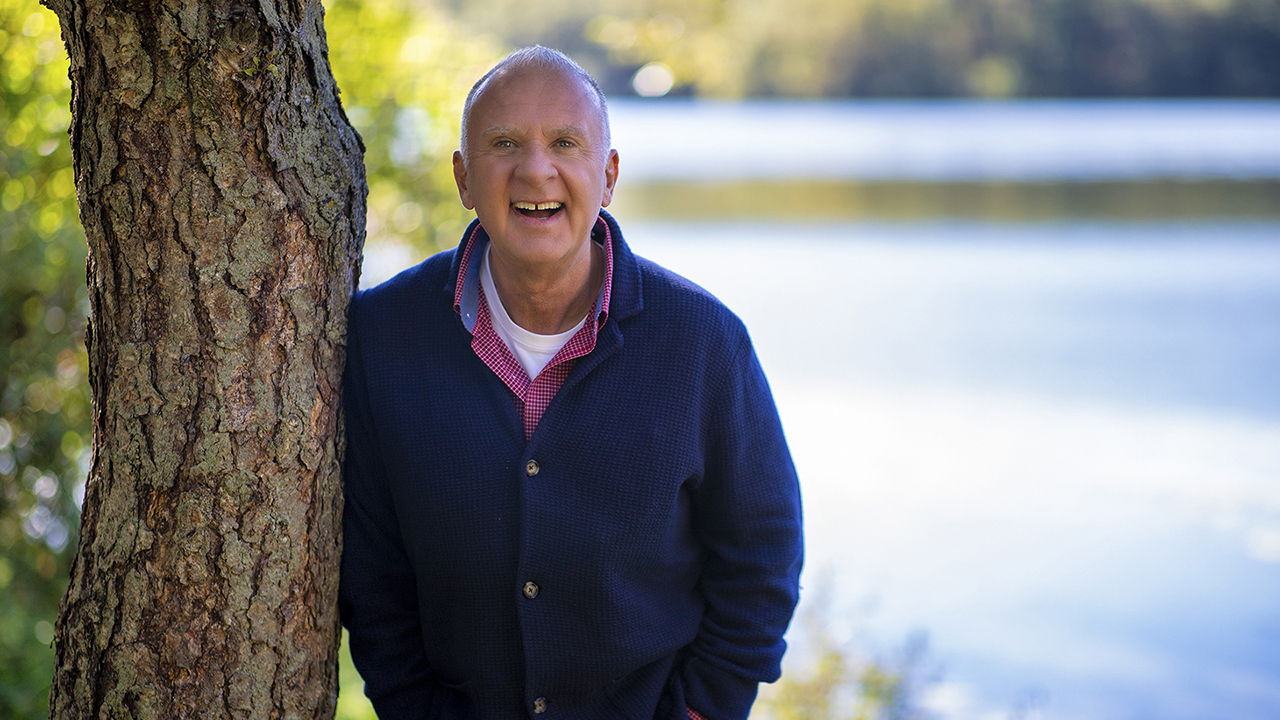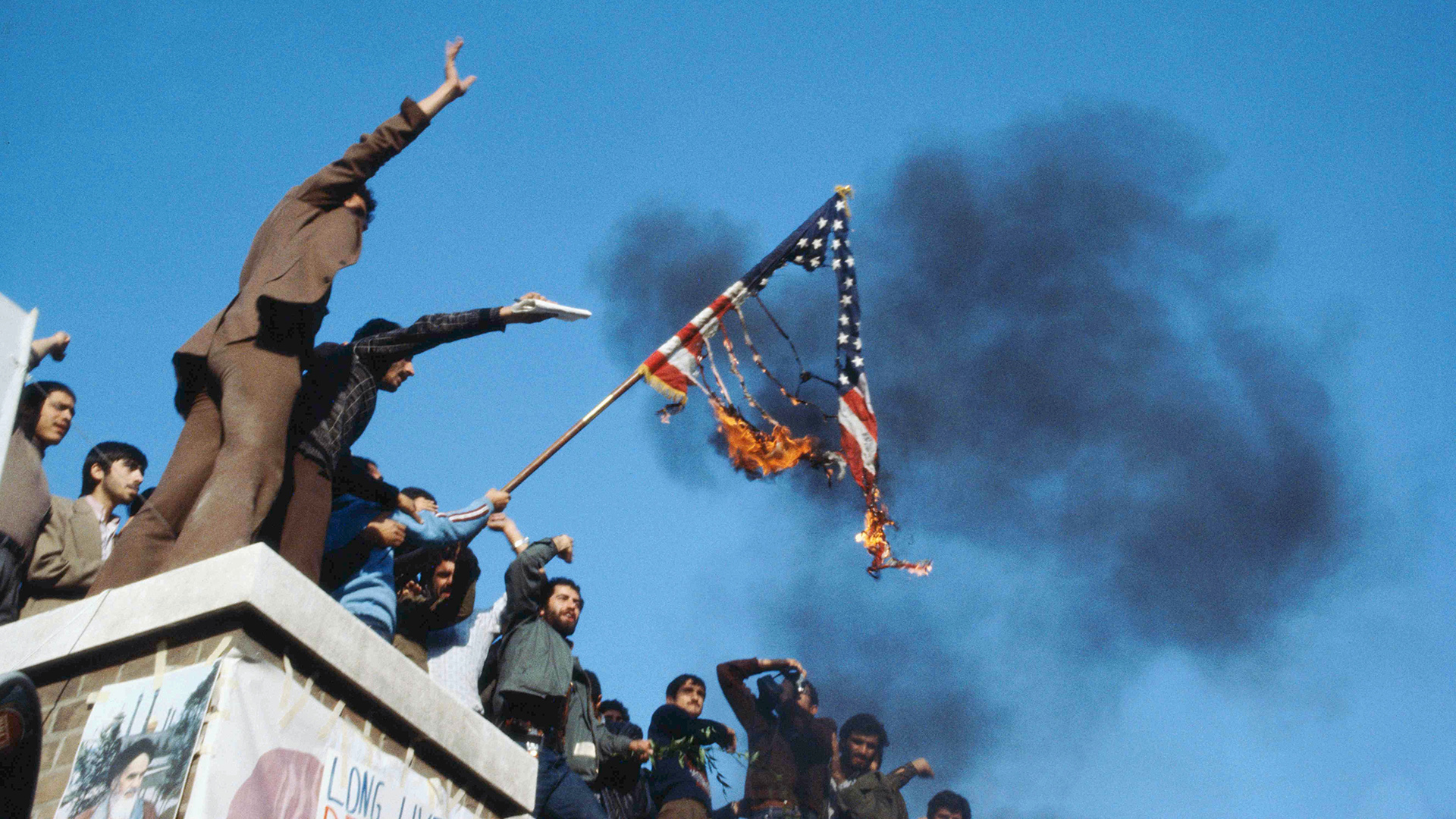Q&A: Filmmaker Robert Stone, ‘American Experience: Taken Hostage’
November 1, 2022 Leave a Comment
Unfolding like a political thriller, American Experience: Taken Hostage is a riveting four-hour, two-part documentary film about the Iran hostage crisis, when 52 American diplomats, Marines and civilians were taken hostage at the American Embassy in Tehran on Nov. 4, 1979.
For the next 444 days, the world watched as the United States received a daily barrage of humiliation, vitriol and hatred from a country that had long been one of our closest allies. The crisis would transform both the U.S. and Iran and forever upend the focus and direction of American foreign policy.
The film also explores the backstory of how America became mired in the Middle East and the nation’s role in igniting the firestorm that has consumed the most strategically important part of the world for the last 40 years.
American Experience: Taken Hostage premieres 8 p.m. Monday, Nov. 14 and continues at 8 p.m. Tuesday, Nov. 15 on PBS Wisconsin and streaming on the free PBS Video App.
Ahead of its premiere, PBS Wisconsin spoke with writer, producer, director and University of Wisconsin-Madison alum Robert Stone about the film.
PBS Wisconsin: What inspired you to create a film on the Iran Hostage Crisis?
Robert Stone: I was a senior at UW-Madison, I was a history major and I was sitting under professor Harvey Goldberg and taking a class with him – I had taken several. It was November 1979, and when the hostages were taken and this became really all that anybody was talking about and ubiquitous on the news, professor Goldberg stopped teaching the class that I had signed up for and changed the curriculum to just getting extemporaneous lectures about the history of Iran-American relations and all the stuff that we weren’t hearing on the news of the history of our involvement in Iran.
PBS Wisconsin: Why did you decide to create this film?
Stone: In all the years, I’ve never seen a documentary that really did justice to this story. You have to get away from it for many decades for it to have meaning and resonance. It seemed to me, looking back on it after all these years, you really can’t understand 9/11, you can’t understand our invasion of Iraq, you can’t understand our involvement in Afghanistan, our relationship with the Saudis, everything that’s gone on in the Middle East in the last 40 years without understanding the Iranian Revolution and what a shock that is. We’re still living in the aftermath of this experience. There’s been lots of documentaries on our involvement in all these things, isolated stories, so I thought this would be a good opportunity to really tell the backstory of how we got here.
PBS Wisconsin: How did you approach it differently?
Stone: There have been some documentaries about the hostages and the experience of the hostage crisis and the hostages themselves, but all of this requires context. There’s been very little ever done about what caused the hostage crisis, what was the backstory to that? Most documentaries that have been made about this might make passing reference to [Mohammad] Mosaddegh and the CIA coup that overthrew the first democratically elected government in the Middle East and restored the Shah to full autocratic power. That’s something that everybody in the Middle East and Iran, that’s very raw history that’s never been forgotten, but most Americans have no idea that that happened … I thought that story really needed to be told in full. We did that.
PBS Wisconsin: What do you think viewers might be surprised to learn?
Stone: I think most Americans would be surprised to know that Iran was one of our closest allies in the world for decades. Now they’re one of our greatest enemies. And how modern and Western it had become under the Shah, at least certainly in the urban areas, and what an enormous cataclysm it was when the revolution took place and overthrew him, and America’s complicity in all of that. That’s a story that’s really not known and without that, the hostage crisis just seems well, “Oh, these crazy Muslims taking Americans hostage. It’s all so unfair to us. What a terrible thing it was.” So I feel like context was really important. Context is always important, but it’s particularly important in understanding our role in the Middle East. We’re not just innocent victims.
PBS Wisconsin: How did you find the film’s key figures?
Stone: I wanted to tell stories from people who had not had an opportunity to really tell it and to get some new perspectives. One of the real driving forces of the revolution is the role of women in Iran and throughout the Middle East for that matter. I thought that was a very underappreciated aspect of this story that I wanted to forefront. Finding Hilary Brown and Carole Jerome, who were these two pioneering foreign correspondents. Back in those days, women were really never sent to the front lines of combat situations, which is really what covering the revolution was. They were really the first of their generation to do that and really lay the groundwork for people like Christiane Amanpour. I thought their perspective was really interesting and different. They were very important.
PBS Wisconsin: Your film also touches on the changing media that the Iran Hostage Crisis ushered in. What prompted that change?
Stone: It’s really more about the convergence of this incredibly violent, visceral, dramatic story with modern technology of the news networks all switching from shooting 16mm film to shooting video tape, which obviously changed the immediacy of gathering material and also the sheer volume of footage that you can gather. In the old days, you shoot 16mm, it was a very expensive roll of film. If you were shooting in Iran, the footage had to be put on a plane and taken to New York and then processed. It was a long ordeal. Now, shooting videotape, you can upload via satellite, you can do live recording. All this was very new, and here you have this incredibly dramatic story with incredibly dramatic visuals, you can’t take your eyes off it. The hostage takers knew that they were capturing the world’s attention. They were holding press conferences every day. The government knew it, the protesters knew it. There were all these protests in front of the embassy, people burning America’s flag and shouting, “Death to Carter!” “Death to America!” You walk two blocks away and it was calm and normal. There was a lot of theatrics. It was a great news story and got huge ratings. You can see sort of the beginnings of this convergence of news becoming a form of entertainment, really, and the news coverage of an event starting to alter the event itself in terms of how the American government was forced to respond to this thing simply by virtue of the volume of the news that was coming out of Iran everyday, that was forcing President Carter’s hand.
PBS Wisconsin: What were the biggest challenges of creating this film?
Stone: The creative challenge was telling this broad sweep of history while keeping it personal and emotional and not having it become a dry lecture. Framing it around the key characters that we did, I thought, kept the narrative going in a way that was meaningful and emotional. And then finding all this footage, which a lot of it had been smuggled out of Iran, it was hard to find. A lot of it is just buried away in various archives around the world – we got stuff from four continents. It was a big challenge, and sifting through all the stuff. The sheer volume of footage there was on this topic to wade through was intense and then also finding things that had never been broadcast before, things the Iranians themselves had shot, both of the revolution and in Iran before the revolution. We have footage that the hostage takers took of the hostages, which a lot of that’s never before been seen.
PBS Wisconsin: What do you hope viewers take away from this film?
Stone: I hope they gain a better understanding of what’s happening now, that Iran is not this monolithic, evil country that is America’s arch enemy – that there’s always been different factions in Iran. It wasn’t a foregone conclusion that this was going to become a strict Islamic theocracy. That just sort of happened and the hostage crisis was part of the reason that it happened. There are struggles in the Middle East, and we tend to create caricatures of the people living there and kind of demonize them as being somehow “the other” and they’re not. They’re people like us, there’s multiple different factions and they can’t all be judged by the appalling leadership that they have, any more than we would want to be judged by some of our appalling leaders.
PBS Wisconsin: How does this film reflect the influence of your time at UW-Madison with professor Goldberg?
Stone: If it hadn’t been for those lectures by Harvey Goldberg, I don’t think this movie would have been made. It really left a profound impression on me, and I think anybody who ever attended those lectures probably never forgot them. Professor Goldberg got me into film, too. The following semester, instead of doing a term paper for him, me and my friend asked him if we could make a movie, and we did. It was a big hit. Then when I graduated from college, he had been very good friends with a lot of the French New Wave filmmakers. He spent a lot of time living in Paris. I told him I was going to France, and he gave me the names of all these people to look up. He was really encouraging of me wanting to become a filmmaker. He’s had a big influence.
 Passport
Passport






Gerry says:
My wife and I watched the documentary. As Canadians during those dark days we were not only concerned with the American hostages plight and release we were honoured that our country played a such major role in the hostage’s liberation. Wonderful how our two country worked together as friends. It was truly sad that our country, hero Canadian Ambassador Ken Taylor and our embassy staff were not even mentioned
Roy Patterson says:
Six of the American hostages were freed because of a joint US and Canadian operation. The Canadian component was played down in the film, “Argo”, giving most of the credit to the CIA, but I expected it to be more accurately represented in a documentary. There was not even a mention of it!?? Ken Taylor, the Canadian Ambassador to Iran, was given credit by President Carter who said that he was the “main hero” in the operation, and President Reagan awarded Taylor the Congressional Gold Medal for orchestrating the process. Anyone interested in the story can search “the Canadian Caper” as the operation became known.
Hamid says:
Robert Stone has once again collaborated to force all Americans and Iranian Americans to consume and live under the semi-fictional narrative of the NeoCon-Zionist-Islamic Republic coordinated and concerted propaganda of the so called, Iranian Revolution. Anyone can see the pressure and coercion to remove the Shah was a pattern of exploitation that several more developed, industrial powers had become accustomed to. The ommision of a survey of this obvious theme, is an injustice to an American audience. Further more, the perpetuated, missing facts of the Reagan and Bush administration’s contracts to detain the hostages in order to subvert President Carter’s election incumbency should be indictable as a crime to both Americans, as well as Americans of Iranian descent, for its examples and incitement to hate, slander, misinformation, manipulation of American democratic free-will, collusion in the subversion of American government, and provocateurism [See: Barbara Honager, and long published contracts].
We are forty-plus years removed, and their is no claim for naiveté of missing, vital facts by Stone or his collaborators . . . imperative facts, by any rational American of honest interest. The question is why arms were being traded for hostages as an enterprise under our government then, and why a stop to all its forms hasn’t found a permanent establishment in our government now, once revealed by the Contra Affair convictions. Ronald Reagan was clearly humiliated by this lie he had been concealing, as he was forced to make statements explaining it to the public.
The timing of Stone’s redundant propaganda can only be seen as further subversion of the JCPOA/Peace-Deal agreed on by the Obama Administration and then reneged on in the successive Trump administration, along with subversive terrorist attacks and assassinations on Iran that we regularly participated in or partied to flr the last many years, and which arr related to those who are inciting the US and Iran to war. This was expressed openly by many former cabinet members dating back to the Contra Affair, and the indirect murders of thousands of innocent civilians by indiscriminate sanctions over decades [see: A Project For A New American Century, a think tank]. So, why was Israel and the Reagan administration helping Khomeini in Iran and Sadam Hussein in Iraq, well into the eighties and now the story is allowed to be cherry-picked and isolated for another end? [See: Parsi, T. A Treacherous Alliance]. None was, nor has ever benefitted Americans, only subjected them to a world determined by them.
American citizens and media need to reclaim their right to all the relevant information surrounding their (government’s) history, with some legitimate oversight of propaganda which ensures that interest groups and enimical influences do not pervert the truth to exploit Americans to kill or be killed, and further lose their once admired, objective, industrious, compassionate character. It was not a mistake that Iran (a familial, historical IE culture with many compatible qualities and aspirations) was America’s ally for those many decades. It only took a change in influence and politics here to create the disastrous policies of the eighties on, of which we are still not free from, or resolved about. The proof of this, is this film keeping all of us stuck (provoking our reaction and anger) of a stale, bankrupt, singular moment of semi-fictional, exploitative, so called, history.
Sarah Win says:
Jeez, I can’t keep watching this.
What they do is take a 3rd world country like Iran and impose their present day values (social and economic) on them. It makes the rulers look bad. They don’t compare Iran in the 60’s & 70’s with America of the 19th century or early 20th century when there was immense poverty, inequality and no real democracy. CIA is the trainer or all secret police why is the Shah vilified? Why don’t you show the face of the lady tortured? It surely has been a decade. One sided story telling is not only unfair but is spreading lies & false narrative of events. Today Majority people in Iran longing for the shah and appreciate all that he has done for the country.
Mike says:
I actually knew the father of one of the Marines taken, he worked a parking lot across from Park Avenue where I worked. We talked everday and became friends for him to get robbed for 14 dollars and killed, seems voilence is always right around the corner